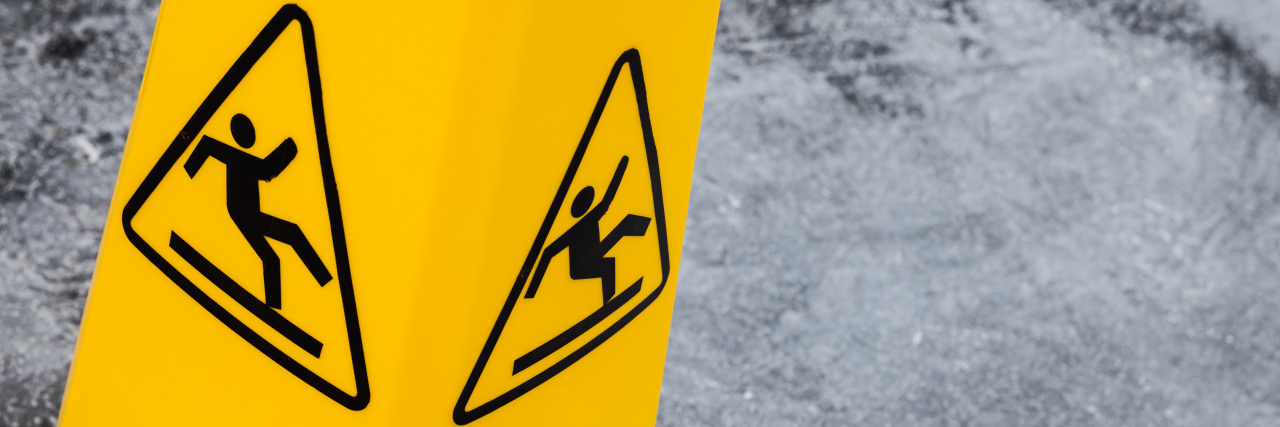At the end of March, I turned 30. I’m not one to grandiosely celebrate my birthday (if you are one of those people, I applaud you. Can I take that cool-as-cucunmber confidence for a spin sometime?) I am finding that as I get older, the more I want to retreat and savor the small moments I otherwise take for granted in the daily grind: my yoga practice, an hour of honest-to-goodness uninterrupted reading time, and a freshly corked bottle of wine… glass optional.
But this year, my birthday felt different. It felt big and beautiful in ways it hadn’t before. And it wasn’t just because I was entering a new decade (hey 30s, I see you and I like you already) — but because I reached a very significant milestone in my life. I have now been disabled for exactly half of my life.
I’ve written before about my journey to getting diagnosed with oscillopsia, a permanent neurological condition I developed when a harrowing bacterial infection in my head met its maker in a much-too-high dosage of intravenous antibiotics. (You can read more about that topsy-turvy adventure here, if you’d like.)
This milestone means more than just a pretty fraction. To me, it proves that despite what I went through, I am still here. I have more than merely survived the trenches of deep physical trauma. I have triumphed the heck out of it. So to celebrate, I’m taking a moment to reflect on the top three things I’ve learned since I lost my balance forever.
1. So much of how our body operates is balance based. Did you know your vestibular system allows you to feel the drops in roller coasters? That it gives you spatial awareness underwater? That it stabilizes your vision? I honestly had no idea until I lost those bodily features. But now I live a life where amusement parks have lost their thrill, I can’t swim or bike or skate for the life of me, and it takes me significantly longer to chop vegetables than I’d care to admit. If you don’t wobble when you walk, just take a minute to appreciate how cool that is. Your body has ingrained equilibrium just by existing. Whoa!
2. As a society, we’re not so sure where invisible illness fits in. In fact, I think many would argue that culturally, we’re not so sure where any kind of difference fits in. But I’ve noticed a trend in seemingly looking “normal” on the outside, a trend in which able-bodied people need some kind of “proof” that I have a disability. But I have learned it is my responsibility, not theirs, to provide an education about a life and a perspective that is a little different than their own. It is my job to expand world views and to use those conversations where the dialogue centers around “but you look so normal” to say, “I am normal. I just swerve in the daylight. Now tell me about you.” We never grow by living in a bubble. In fact, I would say we grow best when the bubble is burst.
3. The human body is a freaking masterpiece. It has the ability to bend, break, contort, and lose its original essence but manages to regenerate anew. If you’re reading this and are in the midst of the aforementioned bending or breaking, I’m thinking of you. I hope your body is doing its thang and is just waiting to wow you. It has taken me 15 years, but I can now unabashedly appreciate how my body has adapted to my disability. It’s developed workarounds and shortcuts, like an anatomical version of Chutes and Ladders. (That being said, take care of yourself. Your body does its best work when it’s loved.)
After 15 years, I can honestly say losing my balance forever was the best thing to ever happen to me. It forces me to regularly slow down and makes all of life’s silver linings glow. To be honest, I’m not quite sure of the person I would be without it. It simultaneously informs my identity while teaching me to live in spite of it. I’m proud of how far I’ve come and also recognize how much more I have to do. It took me half my life, but here I am. Exhausted and off-kilter. But buzzing with the good stuff… joy.
Getty image by Eugene Sergeev.

